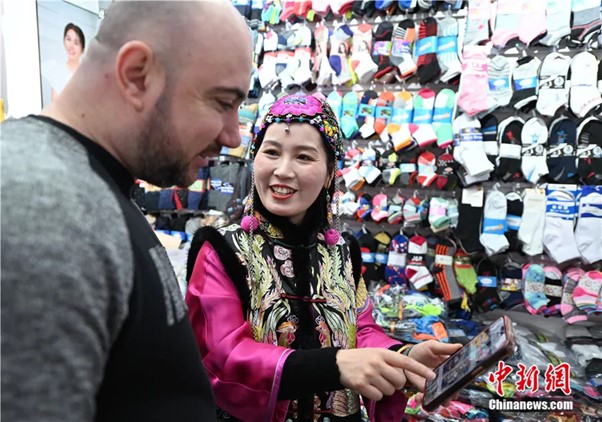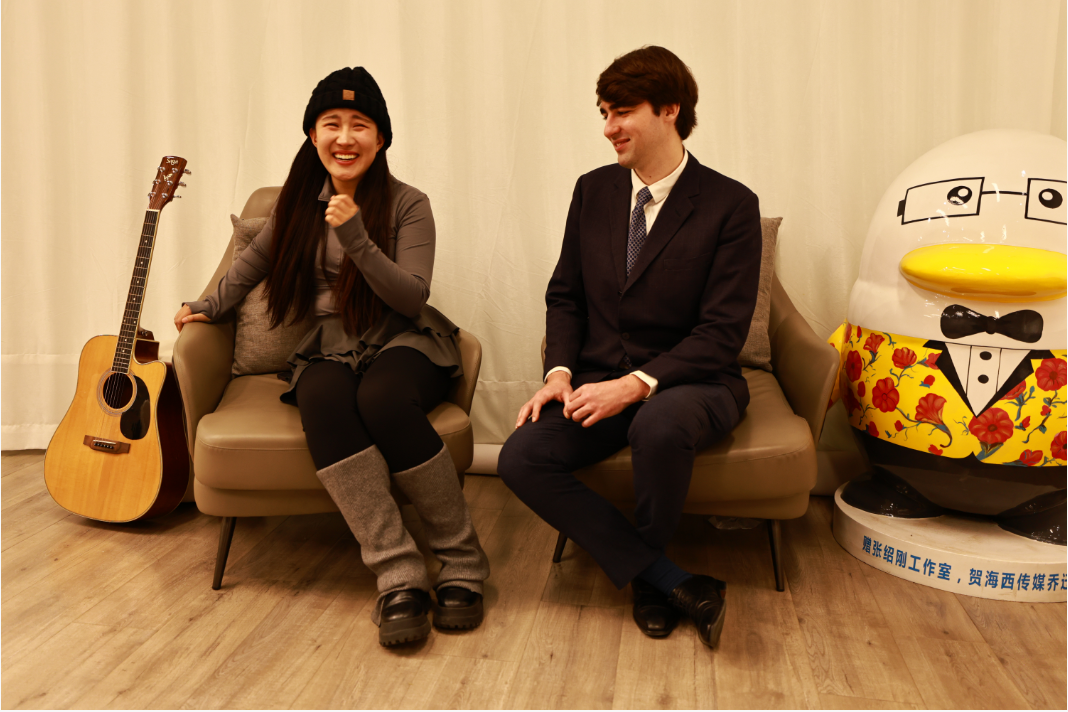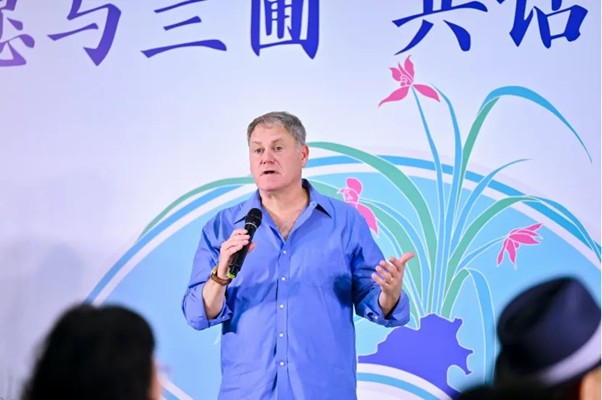On February 27, local time, the U.S. Open Artificial Intelligence Research Center (OpenAI) announced the launch of the latest model GPT-4.5 research preview version, saying it is the company’s largest chat model launched to date. Since the start of 2025, including Chinese artificial intelligence enterprises DeepSeek, France Mistral artificial intelligence company, the U.S. entrepreneur Elon -Musk’s xAI, and many other tech companies have launched new AI models one after another. The AI field has shown continued growth.
How to evaluate the current development trend in the field of artificial intelligence? How do you see competition and cooperation in the field? What challenges will the development of AI face in the future? What kind of mindset should be adopted to welcome the development of AI? 2024 Chinese Government Friendship Award winner and Academician of the European Academy of Sciences, Fausto Giunchiglia, was recently interviewed by East Meets West on this matter.
Fausto Giunchiglia, a member of the European Academy of Sciences and a professor of computer science, was awarded the 2024 Chinese Government Friendship Award. He has coordinated or participated in dozens of international projects. His current focus of innovation is on how to build a global network of cooperation to generate and share human-centred data. This high-quality data is generated by humans, about humans, controlled and managed by humans, and coexists with humans, with the goal of benefiting humanity and society as a whole.
What are the current development priorities in the field of artificial intelligence? To what extent does AI actually affect the development of human society?
Currently, with the rapid development of generative AI, the dominant trend in the field is the creation of intelligent systems to support users in performing human-centred tasks. These tasks, which have to be done as part of people’s daily lives or work, include generating text, solving mathematical problems, writing simple software programs, and answering user questions, especially on topics that are outside the expertise possessed by the user.
This development may soon have an impact on the very foundations of human society. We can immediately see two major opportunities for generative AI: the automation of a large number of knowledge-intensive jobs; and access to ‘online experts’ who will provide answers to almost any question. People will be able to ask questions in natural language, and the answers will no longer be links to web pages obtained through web searches, but will be generated by integrating online content with the vast amount of common-sense knowledge possessed by the generative AI system.

What challenges will artificial intelligence bring to our future lives?
The first challenge posed by the widespread adoption of generative AI systems is the significant loss of white-collar jobs. Fortunately, this impact is only temporary, as new jobs will be created around the application of generative AI systems in both old and new areas.
The second challenge is more subtle and relates to safety issues. Due to their nature and the way they are trained, generative AI systems provide poor quality answers. These systems are unable to perceive reality with sight, hearing, smell, touch and taste, as humans do. They do not know what reality is and learn mainly from online texts provided by third parties. The third party here is usually a human being and sometimes other artificial intelligence systems.
Where does the material used to train AI systems come from? How can personal privacy be ensured? Questions such as these lead to the foundational mid-term question of whether generative AI will not necessarily have a positive impact on the future of humanity. It is not difficult to imagine a future in which people will ask generative AI systems for everything, and often for things they do not know. In most cases, people will not be able to check whether what the generative AI is saying is true or whether what it is saying is consistent with its perceived environment.
In January this year, Chinese company DeepSeek released its open source model DeepSeek-R1, which attracted widespread attention in the global AI field. In your opinion, what are the special features of the model?
The key improvement that DeepSeek brings is the ability to obtain higher quality results while significantly reducing energy consumption, which is certainly the future direction of AI development. However, in my opinion, this is only just a small step forward and the first results achieved can be further expanded to make AI systems more affordable, relevant and useful to humans.
Former Google CEO Eric Schmidt described the emergence of DeepSeek as a ‘turning point’ in the global AI competition. How do you see the relationship between competition and collaboration in AI?
Artificial Intelligence will change the way we think and the nature of knowledge and reasoning, which could be a unique opportunity for human civilisation to take a giant leap forward. Imagine how much people’s quality of life would be improved if AI allowed everyone to seek help from those in the world who could best meet their needs. But for this to happen, we will have to move beyond the current trend of having global solutions to problems proposed by a single actor who is usually motivated by profit.
This requires action at two levels. First, we need to collaborate to build the basic ethical, legal, sociological, organisational and technological data infrastructures that enable different cultures to understand each other and to share data and models. Second, different economies produce products and services driven by generative AI and data locally and distribute them competitively around the world with the help of cooperatively built infrastructure.
The end result will be a society that is more knowledgeable and data-aware. In this society, each culture will be enriched by its interaction with other cultures, while retaining its own identity. Generative AI will make it possible to build a more inclusive and sustainable society as a result of all of us better understanding and appreciating each other’s similarities and differences.
The Artificial Intelligence Action Summit concluded in France on 11 February with 60 countries and international organisations signing a statement identifying key priorities including ensuring that AI is open, inclusive, transparent, ethical, safe, secure and trustworthy. Do you think that this is also a challenge that AI development will face in the future? What should be the mindset of those who are not engaged in AI research to embrace the continued development of AI?
These are clearly the core challenges facing the future development of AI, and everyone should agree on them. There may be two reasons for disagreement: one is short-sightedness, and the other is the belief that one’s competitive advantage can be maintained in the long run. I believe that the above mindsets are doomed to failure. But it is not enough to agree on general principles. Statements and visions must be translated into implementation plans and further into concrete actions.
Artificial Intelligence is about the growth of our own knowledge, our understanding of life and how to act in the world, and our use of the knowledge of others. Ultimately, it is about the collective sharing of our knowledge. As humans, we have extremely limited knowledge of the world around us, and AI will empower us to go beyond this greatest limitation. However, it’s hard to see how far we can go in this process just yet.











